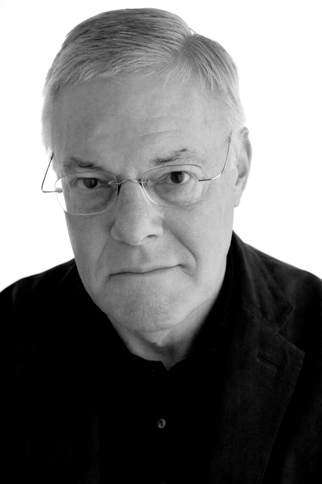The Innisfree Poetry Journal www.innisfreepoetry.org by A CLOSER LOOK: John Koethe
Utterly recognizable, John Koethe's voice is unique among American poets. In language that is often discursive, often plangent, always mesmeric in its lyricism, he explores how we experience our lives, taking the reader along, absorbing him or her in the motions of a mind that wonders, describes, celebrates, and laments. Now approaching 65, Koethe's most recent collections, Sally's Hair (HarperCollins, 2006) and the just-published Ninety-fifth Street (HarperCollins, 2009), limn the contours of a life in retrospect: "The afternoon / Is full of memories and silent passion," the "Sadness of a world . . . / Held together by memory . . . ." He again posits the primacy of memory, as well as its beauty, beautifully:
I love the way remembering lets the light in, as the sullen gray Of consciousness dissolves into a yard, a pepper tree, a summer day. And minor moments and details that had been buried in the past Take on the clarity of dreams, with a transparency they never had in life.
(from "The Lath House," Ninety-fifth Street) A philosopher of language, Koethe
is a poet of linguistic beauty:
It's
like living in a light bulb, with the leaves
Like
filaments and the sky a shell of thin, transparent glass
Enclosing
the late heaven of a summer day, a canopy
Of incandescent blue above the dappled sunlight golden on the grass. (from "Sally's
Hair," Sally's Hair)
A few comments on Koethe's books illustrate his place
in American poetry:
To describe with uncompromising candor the inner life of a man adrift in the waning of the twentieth century is one thing, but to do it without a shred of self-pity is another. John Koethe, with a riveting and limpid intelligence, manages to do both. The poems of Falling Water are like no one else's. In them, even the most extreme exertions of consciousness are transformed into the luminous measures of beautiful speech. —Mark
Strand, on Falling Water
In this ravishing and haunted book, John Koethe comes
face-to-face with the time when "more than half my life is gone," and must try
to find the meaning of a "childish / dream of love, and then the loss of love,
/ and all the intricate years between." As funny and fresh as it is
tragic and undeceived, Falling Water ranks
with Wallace Stevens's Auroras of Autumn as one of the profoundest meditations on existence ever formulated by
an American poet.
—John
Ashbery, on Falling Water
John Koethe is an immensely literary and profoundly
philosophical poet whose poems never seem literary or philosophical: they seem true—true to how it feels to
have a mind, to live in its movement, to think and feel through a lifetime's
accumulation of experience. Koethe
sounds like nobody else, and Sally's Hair
is his best book—at once his most intimate and his most worldly.
—James
Longenbach, on Sally's Hair
The voice is sober, meditative, rising now and then to
the austerely lyrical. The
intelligence is lucid, unsparing, yet infused with love of the world, the only
world there is.
—J.M.
Coetzee, on North Point North
For more extended considerations of John Koethe's poetic
achievement, I recommend Robert Hahn's critical writing, first, his penetrating
essay, "Drawing by Michelangelo, Color by Titian: Of Originality,
Influence, and the Poetry of John Koethe" (http://www.cstone.net/~poems/essahahn.htm),which appeared in the
fall 2004 issue of The Kenyon Review, and second, Hahn's review of Sally's Hair (http://www.cstone.net/~poems/essakoet.htm), which appeared in the May/June 2006 issue of Boston Review. Also,
an essay by Paul Kane titled "Philosopher-Poets: John Koethe and Kevin Hart," which appeared in Raritan,
From 1973 through 2009, John Koethe was Distinguished Professor of Philosophy at the University of Wisconsin-Milwaukee, and the first Poet Laureate of Milwaukee. In 2005 he was a fellow of the American Academy in Berlin, and in 2008 he was the Elliston Poet in Residence at the University of Cincinnati. He is currently the Bain-Swiggett Professor of Poetry at Princeton University.
John Koethe generously shares with the readers of Innisfree 24 poems from seven books. To read the poems, please click here. Domes (Columbia University Press, 1973)
winner of the Frank O'Hara Award for Poetry
Tiny Figures in Snow Domes
The Late Wisconsin Spring (Princeton University Press, 1984)
The Late Wisconsin Spring
Partial Clearance
In the Park
Falling Water (HarperCollins, 1997) winner of the Kingsley Tufts Poetry Award
The Secret Amplitude Songs My Mother Taught Me Falling Water
The Constructor (HarperCollins, 1999)
Threnody for Two Voices What the Stars Meant
The Constructor
North Point North (HarperCollins, 2002)
The Proximate Shore
Moore’s Paradox
Gil’s Café
North Point North
Sally’s Hair (HarperCollins, 2006)
The Perfect Life
21.1
Sally’s Hair
16A
Hamlet
Ninety-fifth Street (HarperCollins, 2009)
Chester
On Happiness
This is Lagos
Ninety-fifth Street
Copyright 2006-2012 by Cook Communication |
